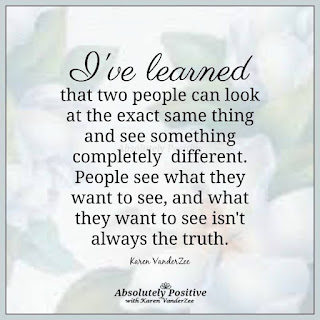Growing Into Emotional Maturity
“Children
think egocentrically, which is manifested in their personalizing everything. If
Dad has no time for me, it must mean that I’m not okay, that something is wrong
with me. Children interpret most abuse in this way.”
John
Bradshaw, Homecoming
The
average addict enters recovery still thinking egocentrically like a child. We
interpret everything to be about us. Children think they are the center of the
Universe and that everything revolves around them—and so do addicts. So we
interpret every comment, every form of body language and every glare that comes
our way to be all about us.
In
other words, addictive personalities take everything very personally. Anything
someone else says or does is about us. We feel responsible for the ways in
which other people think and we most certainly are good at believing that we
are somehow responsible for how everyone else feels.
If
a spouse, lover or friend seems to have no time for us (or not as much as we
may compulsively want from them), then we take it very personally. It’s never
about them and the fact that they may simply be swamped with their own personal
problems. No. It’s always about us. Maybe they’ve finally realized that we aren’t
good enough for them. Maybe they’ve stopped loving us. Maybe they are about to
abandon us. Why? Maybe we said the wrong thing, or maybe we failed to please
them in some way. This sort of egocentric thinking leads us down a terrible
path to personal misery.
As
a codependent in recovery, I still grapple with this type of egocentric
thinking myself. And I have no doubt that it goes back to my childhood. My
parents were both emotionally unavailable and I don’t remember them every taking
the time to do much with me, especially my father. So I still struggle with the
deeply ingrained childhood believe that he never cared about me because I was
somehow a big disappointment to him.
John
Bradshaw is a major promoter of the Inner-Child concept. He believes we all
have a wounded inner-child inside of us that effects our adult thinking,
feeling and behavior. I agree. So the solution to weaning ourselves away from
childlike egocentric behavior is to first be aware of it. Many of us, as
adults, don’t know that we are emotionally reacting to adult situations from a
wounded childhood egocentricity.
Once
we are aware, we can do something to heal the childhood wounds we all carry. We
can talk to the wounded five year old inside of us and assure him/her that we
care and that we are there for them. We can begin to face our insecure feelings
and realize that we are projecting our childhood fears onto present
circumstances.
This
awareness helps us to understand that we are not the center of the Universe and
that what other people say, do or feel is not about us. It gives us the chance
to choose to stop taking everything personally. And it helps ease the fear that
somehow everyone’s behavior toward us is about our not being good enough. This
is a lie. It’s never true. Everyone’s behavior is about them—not us.




Comments
Post a Comment